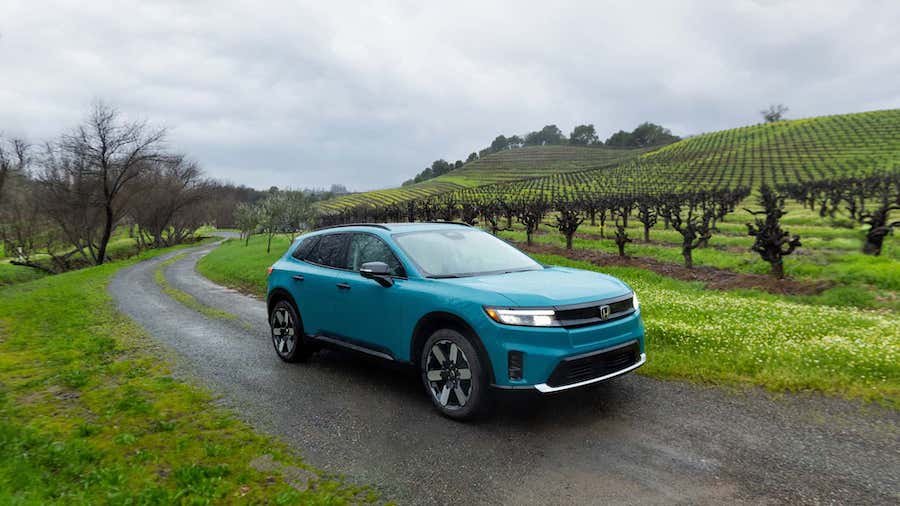How The Honda Prologue Differs From The Chevrolet Blazer EV

Honda wanted to get into the EV game quickly, so it turned to an odd partner – General Motors. The Prologue EV is the first fruit of this partnership, riding on GM’s Ultium battery platform. On paper, it appears to be a twin of Chevrolet’s new Blazer EV, riding on the same 121.8-inch wheelbase and sharing an 85.0-kilowatt-hour lithium-ion battery pack. But this is not simply a badge-engineering job.
“Basically, the frame rails, the floor, the front and rear suspension subframes, those are common obviously,” says John Hwang, chief engineer for the Prologue. “GM when we started shared those hard points where the sheetmetal has to attach, and then they said, ‘Go for it.’”
Hwang adds that the pedal box, steering column mounting, the base of the windshield, and firewall are also shared between Blazer and Prologue.
“When those are common, it opens up a lot of flexibility and efficiency, but it still gives enough freedom for the designers,” he says.
So, the body panels are different, and while the Prologue has a similar low, wide stance as the Blazer, it doesn’t look identical. Merely related.
One key difference is tuning.
“We had meetings with General Motors and said, ‘Our cars feel like this, we want to have this kind of an expression,’” Hwang tells us. “So, we brought some Honda cars and some other cars and benchmarked them and drove them together. And based on that we said, ‘Let’s focus on these areas to tune.’”
The Prologue uses unique springs and dampers, and Hwang says the steering calibration is quite a bit different than the Blazer’s. Without driving them back-to-back, it’s tough to tell the exact difference, but I’m told the Prologue has a softer suspension setup and the steering is a good bit lighter too.
Inside the Prologue, things are different, too. Whereas the Blazer interior has a sporty look, the Prologue’s cabin is more subdued, in typical Honda style. Switchgear comes from GM’s vast parts bin, but Hwang says Honda designers and engineers came up with a unique look and feel for the Prologue’s interior. The button and switch locations are unique too, done to Honda’s design standards. Honda also eschews the big, curved infotainment display of the Blazer in favor of a smaller touchscreen.
It’s a good example of how cars can share much underneath but look and feel quite different. The Prologue feels like a Honda, despite its GM roots.
Related News


